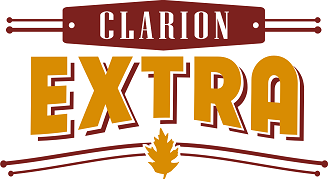From staff reports
The Shapiro Administration awarded $883,143 in grants to help Pennsylvania’s rural communities increase protection from wildfires, while encouraging fire safety across the Commonwealth.
“Ensuring we have well-equipped and highly trained wildfire fighters is key in protecting our forests and wilds from wildfires, whether they are human-caused and naturally occurring,” Department of Conservation and Natural Resources (DCNR) Secretary Cindy Adams Dunn said. “The best way we can show our gratitude to those who help fight brush and forest fires across the commonwealth is to practice fire safety in all situations, especially in October and November when wildfires are most common in Pennsylvania.”
Both Dunn and State Fire Commissioner Thomas Cook thanked volunteer fire companies for their service to communities close to home, as well as those members who often join DCNR’s Bureau of Forestry crews battling wildfires far beyond Pennsylvania’s borders.
They noted the wildfire grants help enable smaller companies to concentrate more on public safety and training while easing their fiscal constraints.
“Each year, a variety of factors like drying vegetation, fewer natural windbreaks and now, scarce rain, come together to compound fire risks during wildfire season,” Cook said. “It’s easy to forget that the men and women that respond to these incidents are our neighbors, family members, and friends, and largely part of the same volunteer fire service that the commonwealth depends upon every day. Grant programs like these are essential financial pipelines, providing firefighters with the mission-critical training, equipment, and supplies needed to safely and successfully complete their missions.”
Grants are awarded on a cost-share basis. The maximum grant awarded in 2023 is $12,500, and grants awarded cannot exceed 50 percent of the actual expenditures of local, public, and private nonprofit organizations in the agreement. The full list of recipients (PDF) is available online.
Priority was placed on projects that include the purchase of wildfire suppression equipment and protective clothing.
Grants may also be used for purchasing mobile or portable radios, installing dry hydrants, wildfire prevention and mitigation work, training wildfire fighters, or converting and maintaining federal excess vehicles.
The vehicles are presented to the local departments exhibiting the greatest needs and those that commit to outfitting them for fire suppression.
In 2022, more than $762,000 was awarded to 122 volunteer fire companies.
The grant program, offered through DCNR and paid through federal grants from the U.S. Department of Agriculture Forest Service, has awarded nearly $16 million since it began in 1982.
The Shapiro Administration has thus far awarded more than $32 million in grant funding to Fire and EMS communities operating in the Commonwealth, guaranteeing access to a vital financial lifeline that provides necessary training, equipment and supplies to first responders.
Though the Commonwealth has seen an increased number of wildfires in 2023, the greatest danger of wildfires in Pennsylvania occurs during the autumn months of October and November, and the spring months of March, April, and May. In Pennsylvania, 99 percent of all wildfires are caused by people.
Certain conditions are necessary for a wildfire to occur:
An available fuel source, such as dried grass or leaves
An ignition source — some way for the fire to start
DCNR encourages those starting a fire at home or at a campsite to make sure there are no combustible items within 10 feet of the fire.
Additionally, it is recommended to have a rake or shovel along with water to properly suppress the embers of a fire.
Finally, officials recommend checking DCNR’s website to see if there is an elevated fire risk.
Advice from DCNR’s Bureau of Forestry includes:
Clear the area around the fire prior to starting it;
Keep the fire small and never leave it unattended;
Before you strike a campfire match, first consider if it is too warm, dry or windy for a fire and if the surrounding area is free of leaves and other combustibles;
Make sure there is a ready source of water (bucket or hose) nearby and a rake to extinguish any embers that might escape; and
When you are done with the fire put it out with water until all ashes are cold to the touch.
Thousands of acres of state and private woodlands are burned by wildfires each year.
Debris burning, equipment use, power lines, and campfires, are some of the most common causes of wildfires in Pennsylvania.
Light rainfall in many areas, lack of green foliage in the spring, low humidity and sunny, windy days all combine to increase chances of forest and brush fires spreading. Such fires are almost always traced to human carelessness.
Residents are also advised to create “safe zones” around homes and cabins by removing leaves and other debris from the ground and rain gutters, stacking firewood away from structures and trimming overhanging branches.

